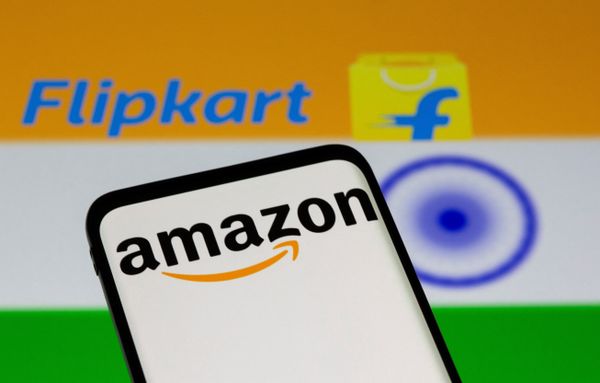NEW DELHI, Sept 14 — Samsung, Xiaomi and other smartphone companies colluded with Amazon and Walmart's Flipkart to exclusively launch products on the e-commerce firms' Indian websites in breach of the country's antitrust laws, according to regulatory reports seen by Reuters.
Antitrust investigations conducted by the Competition Commission of India (CCI) have found that Amazon and Flipkart violated local competition laws by giving preference to select sellers, prioritising certain listings, and steeply discounting products, hurting other companies, Reuters reported this week.
The CCI's 1,027-page report on Amazon also said the Indian units of five companies - Samsung, Xiaomi, Motorola, Realme and OnePlus - were "involved in the practice of exclusive" phone launches in "collusion" with Amazon and its affiliates, breaking competition law.
In Flipkart's case, a 1,696-page CCI report said the Indian units of Samsung, Xiaomi, Motorola, Vivo, Lenovo, and Realme conducted similar practices.
The inclusion of smartphone makers like Samsung and Xiaomi in the case could increase their legal and compliance headaches.
"Exclusivity in business is anathema. Not only is it against free and fair competition but also against the interest of consumers," CCI's additional director general G.V. Siva Prasad wrote in the Amazon and Flipkart reports, in identical findings.
Reuters is the first to report that smartphone companies have been accused of anticompetitive behavior in the CCI's reports which are dated August 9 and are not public.
Xiaomi declined to comment, while the other smartphone makers did not respond to requests for comment.
Amazon, Flipkart, and the CCI did not respond and have not so far commented on the reports' findings.
Both the CCI reports said that during investigations Amazon and Flipkart "deliberately downplayed" allegations of exclusive launches, but officials found the practice was "rampant".
Counterpoint Research data shows that South Korea's Samsung and China's Xiaomi are two of India's biggest smartphone players, together holding an almost 36 per cent market share, with China's Vivo at 19 per cent.
India's e-retail market is set to exceed US$160 billion (RM688.1 billion) by 2028, up from US$57 to US$60 billion (RM245.1 billion to RM258 billion) in 2023, consultancy firm Bain estimates.
The investigation findings are a major setback for Amazon and Flipkart in a key growth market where they have faced the ire of small retailers for years for hurting their offline businesses.
The CCI has also said both companies used their foreign investments to provide subsidised rates for services like warehousing and marketing to a select number of sellers.
[caption id="attachment_372365" align="aligncenter" width="1122"] People walk past Xiaomi, a Chinese manufacturer of consumer electronics, store in Mumbai, India, on May 11, 2022. — Picture by REUTERS[/caption]
People walk past Xiaomi, a Chinese manufacturer of consumer electronics, store in Mumbai, India, on May 11, 2022. — Picture by REUTERS[/caption]
Online sales boom
Some of the smartphone companies — Xiaomi, Samsung, OnePlus, Realme and Motorola — have been ordered to submit their financial statements for three fiscal years to 2024, certified by their auditor, to the CCI, according to an internal CCI document dated August 28, also seen by Reuters.
The investigation into Amazon, Flipkart and their sellers was triggered in 2020 by a complaint from an affiliate of the country's biggest retailer association, the Confederation of All India Traders, which has 80 million members.
In the coming weeks, the CCI will review any objections to its findings from Amazon, Flipkart, the retailer association, and the smartphone companies, and could potentially impose fines along with mandating companies to change their business practices, people familiar with the matter said.
Indian retailers have repeatedly accused Amazon and Flipkart, as well as smartphone companies, of exclusive phone launches online, saying shopkeepers suffered as they did not get the latest models and customers looked for them on the shopping websites.
"Exclusive launches had not only severely affected the ordinary sellers on the platform but also the brick-and-mortar retailers who were provided mobile phones at a much later date," both CCI reports said, citing analyses of data from smartphone companies.
Indian research firm Datum Intelligence estimates that 50% of phone sales were online last year, up from 14.5 per cent in 2013. Flipkart had a 55 per cent share in online phone sales in 2023, and Amazon 35 per cent.
— Reuters
[caption id="attachment_372366" align="aligncenter" width="1248"] A customer prays inside a Samsung showroom in New Delhi, India, on July 27, 2018. — Picture by REUTERS[/caption]
A customer prays inside a Samsung showroom in New Delhi, India, on July 27, 2018. — Picture by REUTERS[/caption]


